Russian oligarch Roman Abramovich is wildly wealthy, successful, and some would even say handsome. At first glance, it would be easy to assume that life clearly dealt him a winning lottery ticket.
However, he wasn't always so well off. In fact, by the time he was four-years old, he was an orphan. His mother died when he was just 18 months old and his father was killed in an accident two years later. Raised by his paternal uncle and maternal grandparents, there was no way he could have ever imagined that someday he would grow up to be one of the richest men in the world. A man who owns the Chelsea Football Club, a $300 million house and an $800 million yacht. He also married a gorgeous and much younger former model, but then again, that ended in 2018. But nonetheless, this is how Roman Abramovich went from rags to the ultimate billionaire playboy tycoon.
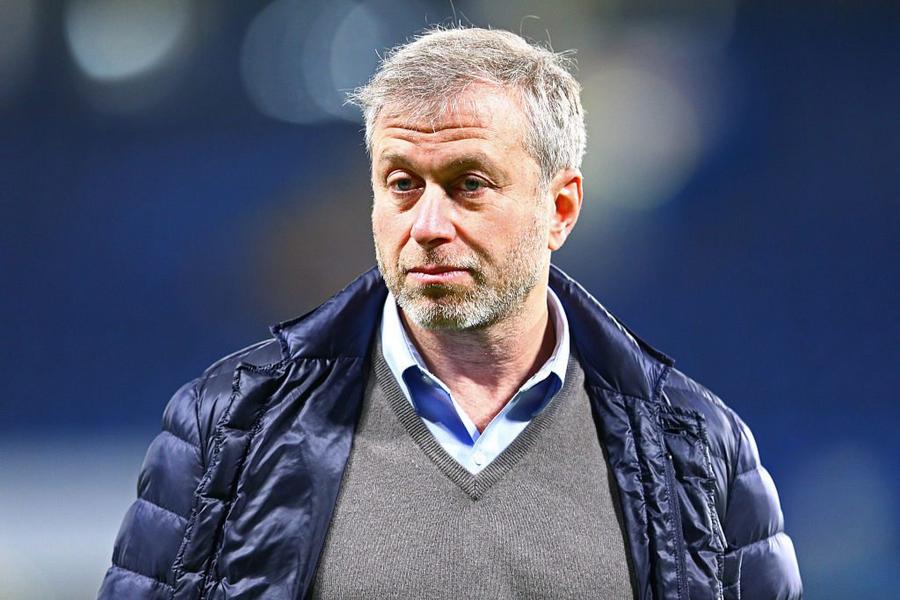
Roman Abramovich – Rags To Billions / Clive Mason/Getty Images
Roman Abramovich was born October 24, 1966 in Saratov, Russia. He attended the Industrial Institute in the city of Ukhta in the Komi region of Russia, but dropped out before completing his degree. He briefly attended another college but dropped out (or was kicked out) a second time. Next, Abramovich spent some time in the Soviet Army, where glimpses of his future business acumen became evident. While in the army, he sold stolen gasoline to commissioned officers to make extra money on the side. After the army he landed a job as a commodities trader for a Swiss trading company called Runicom.
Just before the Soviet Union began to slowly wobble, Abramovich used $2000 of his life savings to begin smuggling black market goods and other contraband into Russia. He soon expanded, dealing in everything from plastic toys to automobile parts. At one point, during the height of perestroika Roman even sold imported rubber duckies right from his apartment in Moscow.
In 1988, Russia's political climate under Mikhail Gorbachev allowed Abramovich to legitimize his black market smuggling business. He took the money he'd made and set up a company that manufactured dolls, toys and furniture. Abramovich would go on to set up and liquidated at least 20 companies during the early 1990s, in industries ranging as wide and diverse as pig farming to bodyguard recruitment.
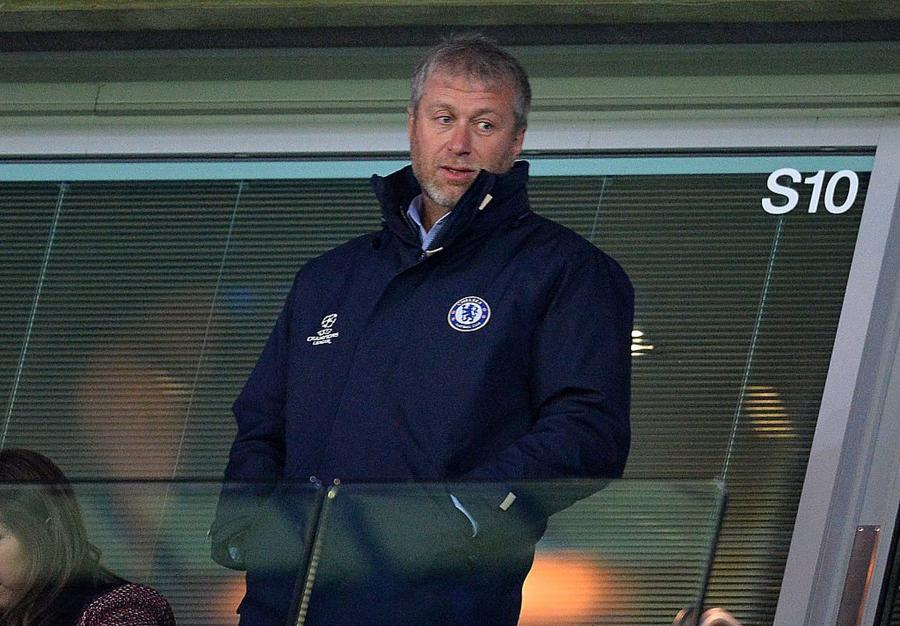
How much is Roman Abramovich Net Worth/ GLYN KIRK/AFP/Getty Images
In 1992, Roman was arrested and sent to prison on charges of stealing government property. Weeks earlier, Abramovich intercepted a train containing 55 cars of diesel fuel, worth 3.8 million rubles, from the Ukhta Oil Refinery. Abramovich met the train in Moscow and re-sent the shipment to a military base under a fake agreement. The case was dropped after the oil production factory was compensated for its losses.
Roman's big break came in the mid-90s when he became friends with a powerful Russian businessman named Boris Berezovsky. Berezovsky introduced him to the inner circle of President Boris Yeltsin. Together, the two acquired the controlling interest in Russia's fifth largest oil company Sibneft. Abramovich and Berezovsky each came up with $100 million to purchase a controlling interest in the company. This $200 million investment was well below the company's stock market value at the time, and some bribery was likely involved. The duo rapidly increased Sibneft's oil production and soon the company was earning profits in the billions. Abramovich later admitted in court that he paid billions of dollars in bribes to government officials on behalf of the company and obtained protection from the Russian Mafia to secure the purchase of these and other many other assets. Abramovich went on to acquire a full 70% of Sibneft, 50% of the Russian aluminium oil monopoly Rusal, and 36% of Aeroflot, Russia's national airline, exhibiting a clear and utter ruthlessness in every business dealing. When Sibneft was bought out by a rival Russian oil firm, Abramovich reportedly earned $10 billion in cash for his 70% stake. Incredibly, today the majority of Abramovich still sits in cash or other extremely liquid asset classes.
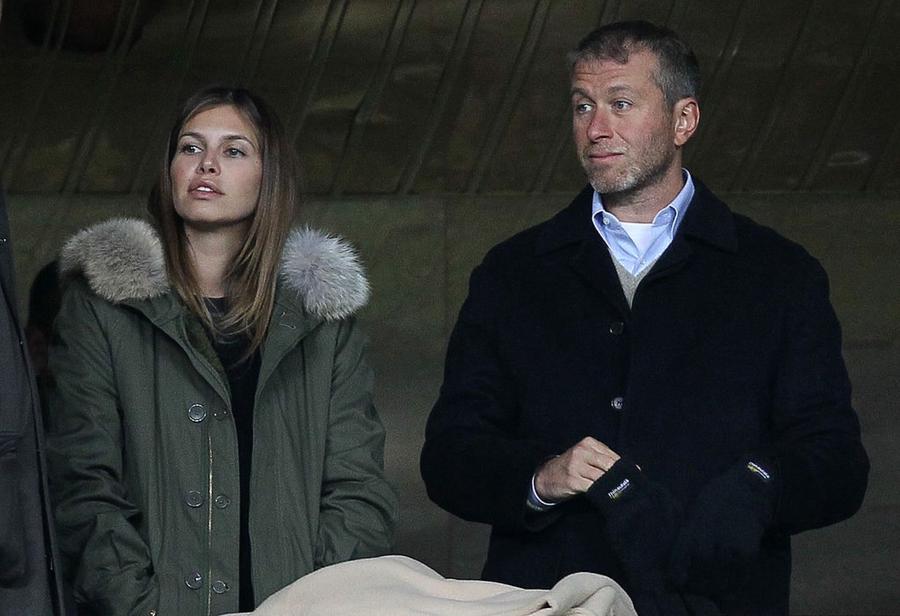
Roman Abramovich with Girlfriend / Alexander Fyodorov/Epsilon/Getty Images
In Russia, when you are a powerful oligarch, it is pretty much customary that you get involved in politics. And Abramovich is no exception. He was the governor of Chuktoka from 2000 to 2008 and during his tenure, is has been estimated that he spent over $250 million of his own money on improvement projects for the region. Under Abramovich, living standards improved, schools and housing were restored, and new businesses opened due to investors being newly drawn to the region.
In June 2003, Abramovich bought the Chelsea Football Club in West London for $105 million. He immediately began an ambitious plan to make Chelsea a globally recognizable brand like Manchester United and Real Madrid. In the last 10 years, Roman has spent $800 million of his own money upgrading and improving Chelsea Football. He attends nearly every game and displays visible emotion during matches, indicating a genuine love for the sport. He also usually visits the players in the dressing room following each match.
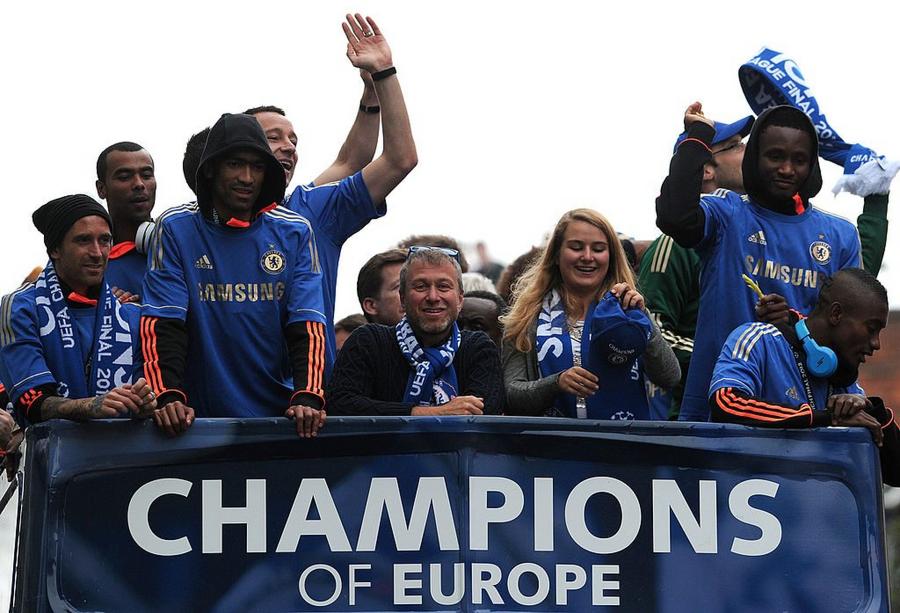
Cheering for Chelsea / CARL COURT/AFP/GettyImages
Abramovich has been married three times. He married Olga Yurevna Lysova in 1987. They divorced in 1990. He married a stewardess from his airline Aeroflot, Irina Vyacheslavovna Malandina in 1991. They have five children together Ilya, Arina, Sofia, Arkadiy and Anna. Roman and Irina divorced in 2007 after Irina found out about Abramovich's new girlfriend, then 25-year old Dasha Zhukova, a billionaire heiress in her own right. They went on to marry – and then divorce – after having two children together, Aaron Alexander and Leah Lou.
Roman Abramovich's business acumen has served him well. He is currently eleventh richest person in Russia with a personal net worth of $18 billion. When he's not cheering at Chelsea Football games, he can most likely be found lounging around a $300 million London mansion or his $800 million yacht (he owns three yachts). He actually owns an incredibly valuable portfolio of real estate all over the world that he and his model girlfriend visit frequently via a customized Boeing 767 private jet.
Roman, however, should not be entirely viewed as the selfish playboy it might seem. He has donated more money than any other living Russian, totalling more than $2.5 billion. His generosity has helped build schools and infrastructure that otherwise would not have been possible.
Not bad for an orphan who once sold contraband rubber duckies from his apartment!
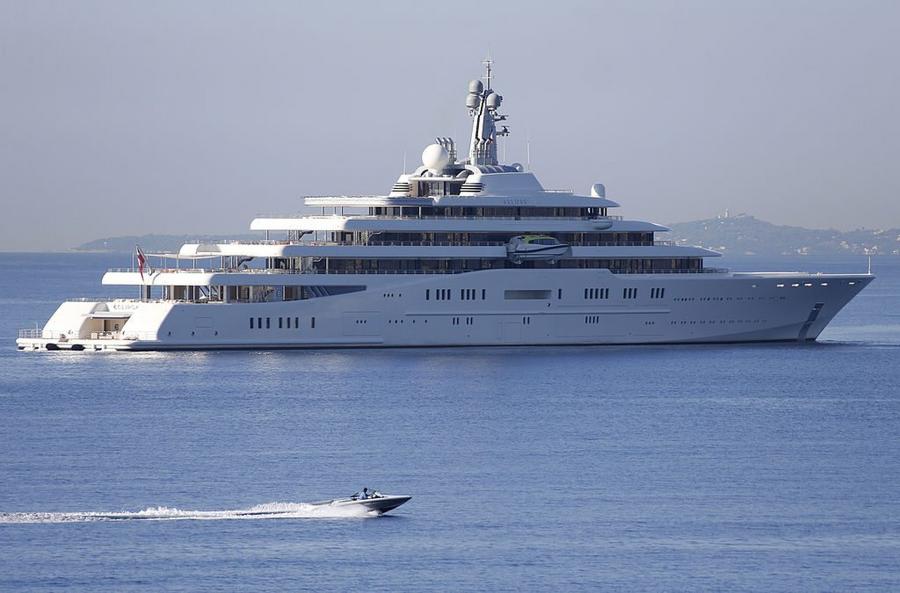
$800 Million Yacht – Eclipse / VALERY HACHE/AFP/Getty Images
/2020/09/GettyImages-131162456.jpg)
/2018/11/GettyImages-521573236.jpg)
/2022/02/Roman-Abramovich.jpg)
/2018/09/GettyImages-511555824.jpg)
/2022/03/Roman-Abramovich-1.jpg)
/2018/06/GettyImages-686354970.jpg)
/2019/10/denzel-washington-1.jpg)
/2020/01/lopez3.jpg)
:strip_exif()/2015/09/GettyImages-476575299.jpg)
/2009/09/Brad-Pitt.jpg)
/2019/11/GettyImages-1094653148.jpg)
:strip_exif()/2009/09/P-Diddy.jpg)
/2020/06/taylor.png)
/2009/09/Cristiano-Ronaldo.jpg)
/2009/11/George-Clooney.jpg)
/2019/04/rr.jpg)
/2018/03/GettyImages-821622848.jpg)
/2020/04/Megan-Fox.jpg)
/2020/02/Angelina-Jolie.png)
/2017/02/GettyImages-528215436.jpg)
/2009/09/Jennifer-Aniston.jpg)